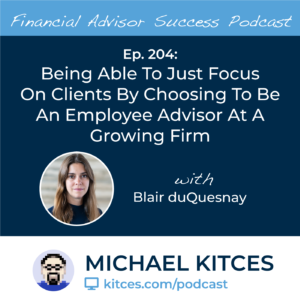Enjoy the current installment of "Weekend Reading For Financial Planners" – this week's edition kicks off with the industry news that NASAA has approved a new Model Rule that would, for the first time, impose an annual Continuing Education requirement for advisors at RIAs (regardless of whether they have a professional designation)... or at least, at the state-based RIAs that are subject to the individual states that may adopt the NASAA Model Rule in the coming years?
Also in the news this week is the news that the CFP Board has hired a 20-year veteran of the SEC's Enforcement leadership to become its new Managing Director of Enforcement as the organization signals a growing focus on actually enforcing its new fiduciary standards of conduct, and a new consumer research study finding that investors are more comfortable with human advisors over robo-advisors and are (slightly) more likely to follow their advice... but were also more likely to be dissatisfied in the recent pandemic market volatility earlier this year (in particular, for all those advisors who advised their clients to "do nothing" and simply stay the course!).
From there, we have several articles on practice management and growth, including tips on the next positions to hire for as an advisory firm grows (from Client Service to Operations, Investments to Compliance), the importance of visioning exercises as an advisory firm leader to truly envision the future growth of the firm (and the organizational chart it would take to get there), and a look at how advisory firms are increasingly rethinking their approach to compensation and benefits (in particular, the ongoing shift from revenue-based compensation to salary-plus-incentives instead).
We've also included some articles on employee performance reviews (as that time of year queues up!), including one strategic approach on how to run the annual employee review process, another highlighting the importance of benchmarking employees not against one another but their own past selves (to measure personal improvement over time, not competitiveness against others in the workplace), and a look at how the 'emotional culture' of an organization can help drive employee success and retention.
We wrap up with three interesting articles, all around the theme of how financial advisors manage their own money: the first is a recap of the recent new book by Josh Brown and Brian Portnoy aptly titled "How I Invest My Money: Financial Experts Reveal How They Save, Spend, and Invest"; the second is the personal story of the Chief Investment Officer of a multi-billion-dollar RIA about how he invests his own money; and the last is an interesting look at how there's often a gap between what financial advisors say their clients should do, and what they do themselves... and the debate about whether that is a sign of advisor hypocrisy, a recognition of how hard it is to follow advice (even our own, as we're human beings too), or simply an acknowledgment of how varied our goals are and the paths that we take (which is why financial planning is so important in the first place)?
Enjoy the 'light' reading!


 Welcome back to the 204th episode of Financial Advisor Success Podcast!
Welcome back to the 204th episode of Financial Advisor Success Podcast!
